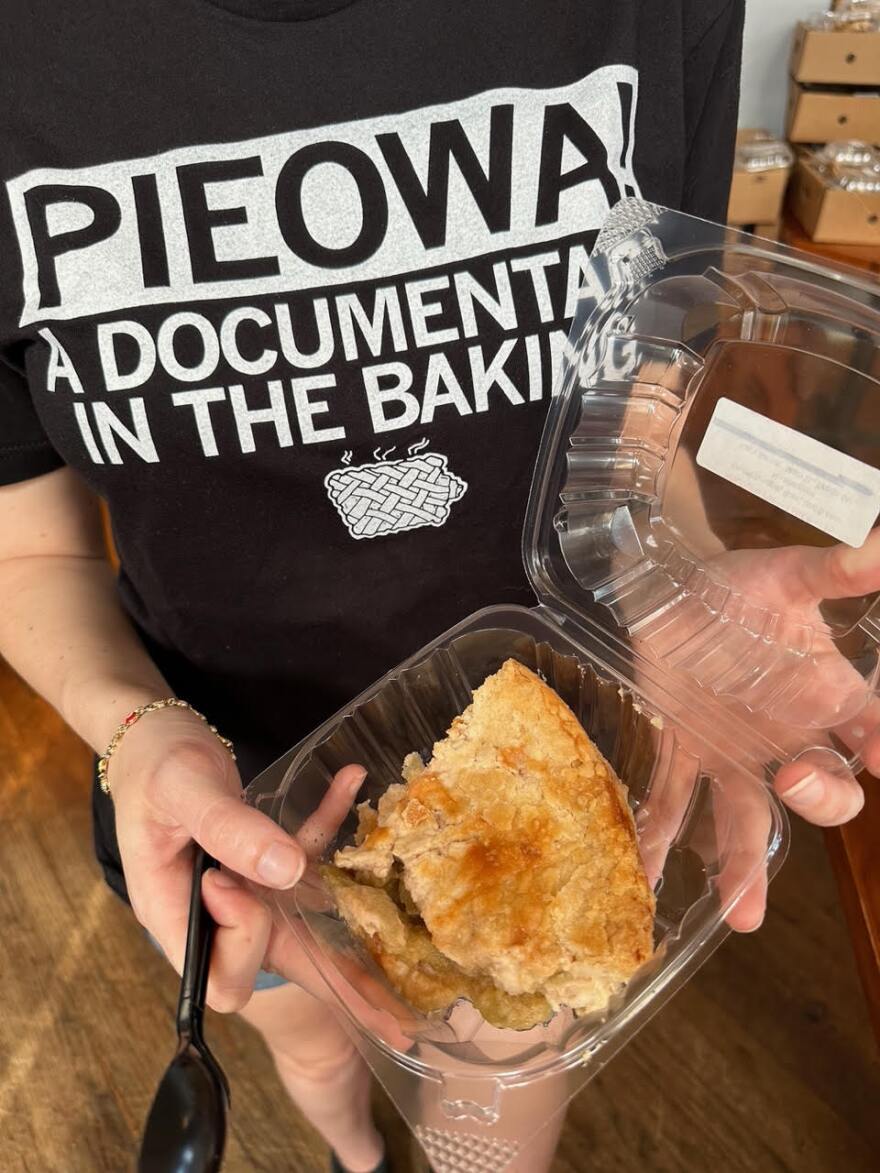For the past few months I’ve been traveling around Iowa filming stories for a documentary called PIEOWA, about how pie is as important to the state as corn and caucuses. From the Missouri River to the Mississippi, I went to restaurants and diners, church bake sales, school fundraisers, pie stands along the RAGBRAI bike route, and into the kitchens of various homes.
I found a lot of pie, but much to my consternation the majority of it was not made from scratch. People were taking shortcuts, using store-bought crust, canned filling, or buying whole pies from the grocery store freezer section.
Worse, many of these supposed bakers—some of them church ladies—were passing it off as homemade, luring in customers with the promise of pie as good as their grandmother’s. But one look at the machine-pressed crust, a bite of the unnaturally gummy filling, or the chemical aftertaste on the tongue canceled out any connection to grandma.
“Why aren’t you making homemade pie?” I asked. The answer was often the same: “We don’t have time.”
The cynical part of me wanted to snap back and say, “You’d have time if you put down your phone.” I wouldn’t be wrong as statistics show that Americans are spending an average of around four hours a day looking at their phones—and that’s not including overall screen time. But I held my tongue and instead tried to better understand why homemade pie, which has been an integral part of midwestern culture for generations, was becoming a lost art.
It started with those shortcuts. Even my own grandmothers bought into the convenience. And while my mom made pie when she was younger—it was her homemade banana cream pie that prompted my dad to propose to her—by the time us kids were old enough to bake she had moved on to boxed cake mixes and instant desserts like Jell-O 1-2-3. As such, I never learned to make pie at home. I’m not alone in this as another answer I heard repeatedly during filming was, “I never learned to make it.”
Even if you did learn to make pie, “lack of confidence” is often another excuse. All those baking competitions on TV make pie seem more complicated than it is and all those Instagram pictures of elaborate decorative crusts can be intimidating. It doesn’t help that every pie article on the internet has the word “perfect” in its title. With all that pressure, why even bother?
This isn’t to say you can’t find good pie in Iowa. Pie businesses are popping up at farmers’ markets and festivals, there are several new pie shops with some pretty delicious creations, and many of these modern bakers are resurrecting the glory days of farm life by using lard in their crusts. The Dutch letter pie at Home Slice Pie in Bondurant and the strawberry-rhubarb crumble at Try Pie in Waterloo are particularly memorable.
Still, buying a pie, even a high quality one, isn’t the same or as satisfying or as beneficial as making one yourself.
When you make your own pie, it’s a win-win on every level. You guarantee freshness and avoid preservatives by choosing your own ingredients. You get the tactile and soothing experience of using your hands to rub flour and butter together to make dough. The rhythm of rolling out crust and the mindful practice of peeling apples can transport you to a Zen state of mind, calming your nervous system with an effect similar to meditation, only better as you end up with a pie at the end. This sense of accomplishment is something you can’t buy at the store.
The people who eat your pie won’t care if it doesn’t look perfect. In fact, the more imperfect it looks, the more excited they will be.
“You made this?” they will say, their eyes wide with awe.
When you answer “Yes,” you will be showered with praise and admiration, because what they are actually saying is “It means a lot to me that you took the time to make this.”
Time is the magic ingredient. Surely we have more of it available to us than we think. Whether in Iowa or anywhere in the world, we just need to be more aware of how we’re spending it and shift our priorities accordingly. We can start by devoting less time to our screens. This is not just my opinion. In May, the U.S. Surgeon General issued an advisory on how social media is harming our health.
An ideal remedy for this is making pie to connect with friends and neighbors in person, demonstrate our care for others, and, as a bonus, increase our well-being. You’d be surprised at how something so basic can have such a profound impact.
Commentator Beth Howard is an author and blogger. Her website is www.theworldneedsmorepie.com.
The opinions expressed are not necessarily those of Western Illinois University or Tri States Public Radio.
Diverse viewpoints are welcomed and encouraged.


